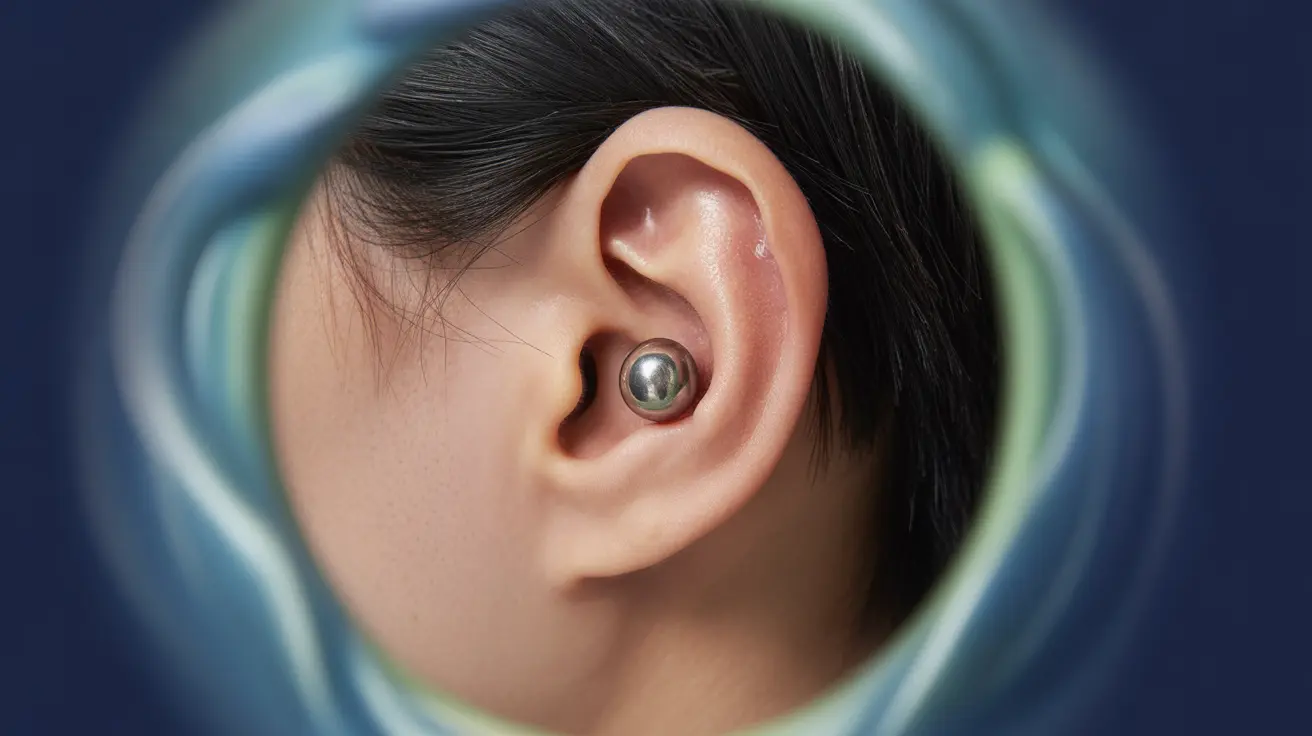A shen men piercing, located at a specific point in the upper cartilage of the ear, has gained attention as an alternative therapy for managing anxiety and migraine symptoms. This specialized piercing targets what traditional Chinese medicine practitioners call the "divine gate" or "heaven's gate" point, believed to influence various aspects of physical and emotional well-being. Understanding its potential benefits, risks, and scientific basis is crucial for those considering this treatment option.
Understanding Shen Men Piercing and Its Origins
The shen men point is one of many acupuncture and acupressure points found in the ear. Traditional Chinese medicine theory suggests this point helps regulate energy flow and promotes overall balance in the body. When pierced, practitioners believe it can provide continuous stimulation to this therapeutic point, potentially offering longer-lasting benefits than traditional acupuncture or acupressure.
How Shen Men Piercing Works
The mechanism behind shen men piercing combines principles from both traditional Chinese medicine and modern understanding of neurological pathways. The theory suggests that stimulating this specific point may:
- Influence nerve endings that connect to various parts of the body
- Trigger the release of endorphins and other natural pain-relieving compounds
- Affect the autonomic nervous system, potentially reducing stress responses
- Promote better energy flow according to traditional Chinese medicine principles
Scientific Evidence and Effectiveness
While many people report positive experiences with shen men piercing, it's important to note that scientific research specifically studying this piercing's effects is limited. Most evidence is anecdotal or based on related research in auricular acupuncture. Some studies have shown promising results for ear acupuncture in managing anxiety and pain, but more research is needed to conclusively demonstrate the effectiveness of permanent piercing at this location.
Potential Benefits for Anxiety and Migraine
Users of shen men piercing have reported several potential benefits:
- Reduced anxiety and stress levels
- Decreased frequency and intensity of migraines
- Improved sleep quality
- Enhanced overall sense of well-being
- Reduced dependency on conventional pain medications
Safety Considerations and Risks
Like any body modification, shen men piercing carries certain risks that should be carefully considered:
- Infection at the piercing site
- Allergic reactions to jewelry materials
- Scarring or keloid formation
- Prolonged healing time due to cartilage involvement
- Potential nerve damage if not properly placed
Proper Care and Maintenance
Successful outcomes with shen men piercing largely depend on proper aftercare and maintenance. This includes:
- Regular cleaning with appropriate solutions
- Avoiding touching the piercing with unwashed hands
- Being careful when using phones or earbuds
- Following all aftercare instructions provided by the piercer
- Watching for signs of infection or complications
Alternative Approaches
For those interested in the benefits but hesitant about getting a permanent piercing, several alternatives exist:
- Traditional acupuncture sessions
- Acupressure massage
- Magnetic ear seeds
- Clip-on ear stimulators
- Professional auriculotherapy
Frequently Asked Questions
What are the proven benefits and risks of a shen men piercing for anxiety and migraine?
While scientific evidence is limited, reported benefits include reduced anxiety and migraine symptoms. Risks include infection, scarring, and potential complications if not properly placed or cared for.
How does a shen men piercing work, and is there scientific evidence it helps with pain or anxiety?
The piercing works by providing constant stimulation to the shen men acupressure point. While clinical studies specifically on the piercing are limited, research on auricular acupuncture shows promising results for pain and anxiety management.
Are there any side effects or long-term complications from getting a shen men piercing?
Possible side effects include infection, allergic reactions, scarring, and healing complications. Long-term issues are rare when the piercing is properly performed and maintained.
For migraine relief, does the shen men piercing need to be on a specific ear, and does placement affect its effectiveness?
Traditional practitioners often recommend getting the piercing on the ear corresponding to the side where migraines typically occur, though evidence for this specificity is largely anecdotal.
What are the alternatives to a shen men piercing for stimulating acupressure points and managing anxiety or migraine symptoms?
Alternatives include traditional acupuncture, acupressure massage, ear seeds, clip-on stimulators, and professional auriculotherapy sessions.




